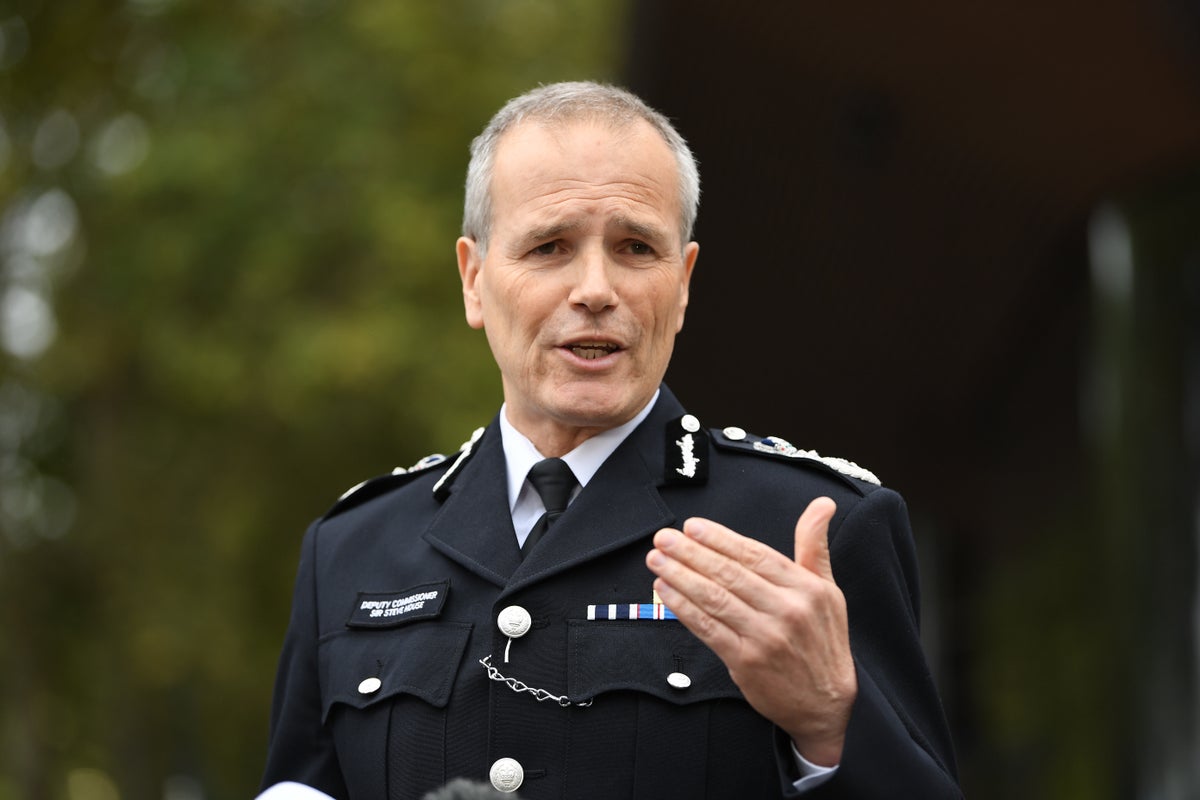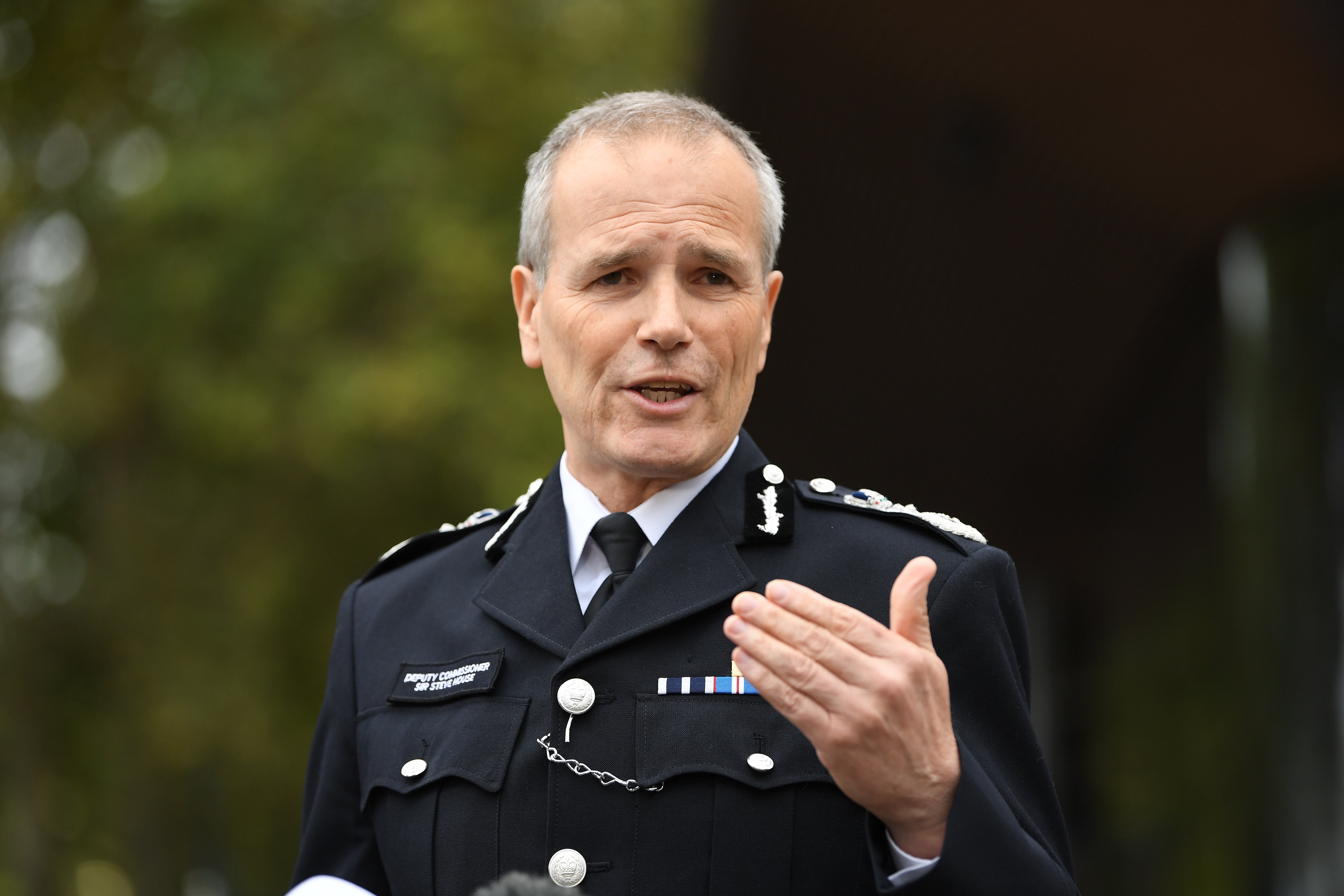
It was “impossible to expect” the police officer who witnessed Downing Street’s notorious Christmas party to realise Covid laws were being broken, the acting head of the Metropolitan Police has claimed.
Sir Stephen House told the London Assembly’s police and crime committee that the role of officers was to ensure the security and safety of those in No 10, adding: “They’re not there to police what goes on inside the building.”
The Sue Gray report confirmed that a Metropolitan Police officer and a “custodian” responded to a panic alarm accidentally triggered during the gathering on 18 December 2020.
“They observed a large number of people in the area outside of the main press office and one individual giving a speech,” it said. “Inside the press office a further 15-20 people were present. There was food and alcohol available which had been bought and brought in by staff. Some members of staff drank excessively.
“The event was crowded and noisy such that some people working elsewhere in the No 10 building that evening heard significant levels of noise coming from what they characterised as a ‘party’.”
Sir Stephen said the officer present did not engage with attendees to explain the Covid laws in place at the time and encourage them to follow them, or move to enforce the restriction on gatherings.
“One of the things we had to decide is: ‘Is this gathering or event work-related or not?” he added.
“I think it’s impossible to expect an officer walking through a room with a lot of people in it to work out whether or not these people are breaching coronavirus regulations, when it’s taken a team of 12 experienced detectives many, many weeks to do the same thing.”
Lawyers who represented people who were fined for Covid breaches during the lockdowns said that this was what officers had done throughout the pandemic.
Responding to Sir Stephen’s comment, barrister Adam Wagner wrote on Twitter: “Over 100,000 fixed penalty notices were given out during the pandemic, the vast majority probably given by an officer who had reached a conclusion on whether there was a breach when attending the scene.”
Court documents from Covid prosecutions have shown that officers routinely concluded that gatherings were illegal on the basis of the number of people and the presence of loud music, food and alcohol.
A national policy against retrospective investigations meant that the vast majority of penalties given to the general public were handed out on the spot by officers, without formal interviews, the opportunity for those being fined to put forward a “reasonable excuse”, or the chance to obtain legal advice.
There was no formal appeal process in place, meaning that innocent people had to refuse to pay fines and risk prosecution in order to challenge them.
Sir Stephen said “We have to [issue] fixed penalty notices ... that we think will win in court,” and that there had been a “file of evidence” behind each penalty.

Kirsty Brimelow QC, a criminal law and human rights barrister who has represented people fighting Covid fines, said the Metropolitan Police appeared to have set a “higher bar” for issuing fines in relation to Partygate in contrast with the “enforcement applied to the general public”.
“Whether a person had a reasonable excuse did not seem to be considered at this stage,” she told The Independent.
“Police would only look at exemptions around the gathering itself, add up the numbers, and then a fixed penalty notice (FPN) would be issued or would arrive later.”
Scotland Yard said its detectives had worked through 204 questionnaires, which were created specifically for the investigation, as well as 345 documents and 510 photographs and CCTV images.
It said officers “took great care to ensure that for each referral we had the necessary evidence to prosecute the FPN at court, were it not paid”.
Ms Brimelow said that normally police would consider evidence only at the point when someone contested a FPN and they decided whether to pursue it in court.
“That is a higher bar than I saw applied up and down the country,” she added. “FPNs would be issued if there was a reasonable belief of a breach, rather than having all the evidence ship-shape if it went to court.”
Sir Stephen defended the Met’s investigation, saying it had been conducted “without fear or favour” and that decisions on whether to fine people were “based on the facts and were proper”.
“The rules in place at the time were that gatherings of two or more people [were not allowed] – work-related is an exception,” he added. “The question is not how many people, the question is what they were there for and did they have a reasonable excuse.”
Sir Stephen admitted that photographs published in the Gray report, of gatherings for which the prime minister was not fined, “look bad”, but added: “We deal with the law, not what looks bad … a photograph can be somewhat deceptive in these areas. We need proof that no reasonable excuse is going on.”
The senior officer, who is acting as Metropolitan Police commissioner while Dame Cressida Dick’s replacement is appointed, confirmed that not all questionnaires were returned.
He said the “vast majority” of those sent questionnaires had responded to the force’s questions, and that the lack of responses was not a bar to investigation.
“We did not simply get put off if somebody didn’t return the questionnaire; that was possibly a spur for more work, not less,” he added.
Sir Stephen has written to London mayor Sadiq Khan after being asked to give “a more detailed and formal explanation” of how the decisions about fines were made. He confirmed that Scotland Yard was in discussions with the Independent Office for Police Conduct over whether they would investigate a complaint by the Liberal Democrats in relation to the investigation.
An investigation into a separate gathering, held at Conservative Party headquarters in London on 14 December 2020, is ongoing.







